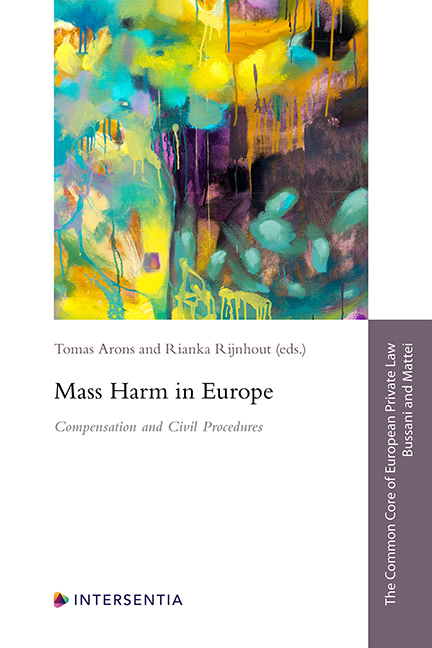Case 3: Defective Blood Products
Published online by Cambridge University Press: 03 April 2024
Summary
CASE
Many patients are infected with the HIV virus and for some of them, HIV progresses into AIDS, due to defective blood products that were used in a particular period. Blood products are regulated by the government, and a government body did not take appropriate care in performing the tests on the blood. Some of the recipients of the blood were haemophiliac and therefore regularly needed blood transfusions.
A group of victims having AIDS, possibly because of blood transfusions in that particular period, demand compensation from the government. This group consists of both haemophiliac and other patients. Will they receive compensation and, if so, for what losses? And is it possible to start a collective proceeding? If so, please indicate the most important bottlenecks in this particular case.
DISCUSSIONS
AUSTRIA
Matthias Dangl and Georg E Kodek
Operative Rules
The patients could bring an action against the government based on the Public Liability Act (Amtshaft ungsgesetz). However, the patients will only receive compensation if they are able to prove that the failure of the government body caused the HIV infection.
A collective action (as described in the Austrian section in the procedural rules chapter) would be possible.
Legal Formants
The decisive question in this case is whether the purpose of the statute violated by the government body was to protect individuals. If this is the case, causality is presumed according to case law. This means that the patients would only have to prove the occurrence of the damage and the violation of the statute, but they would not have to provide strict proof of a causal connection. The government body would then have to refute the (presumed) causality.
Meta-Legal Formants
In 1995 the German legislator developed a special statute in order to provide financial assistance to persons who were directly or indirectly infected with HIV or suffering from AIDS through blood products (HIV-Hilfe-Gesetz). This law excluded all claims against the Federal Republic of Germany (§ 20 HIVG). As far as we know, there was no similar law in Austria.
- Type
- Chapter
- Information
- Mass Harm in EuropeCompensation and Civil Procedures, pp. 181 - 206Publisher: IntersentiaPrint publication year: 2023

